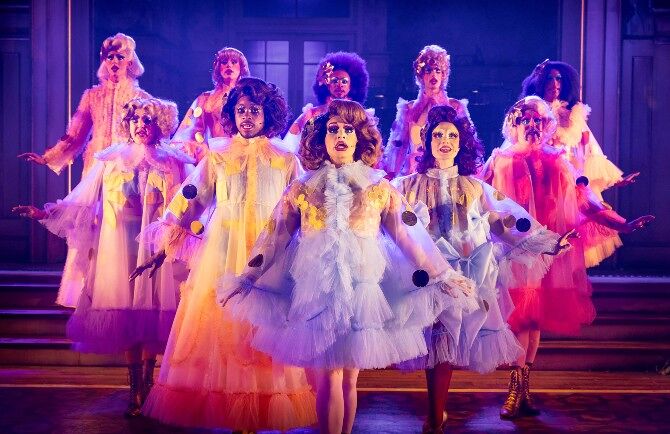
The Rundown
Forty years after La Cage aux Folles opened on Broadway, Jerry Herman and Harvey Fierstein‘s Tony-winning work is having a moment that establishes the musical as both a period piece and a celebration of queer joy.
Based on the 1973 French play of the same name that was adapted into the groundbreaking 1978 French film, the success spurned the creation not only of the 1983 Broadway musical but also a Hollywood movie remake, The Birdcage, starring Robin Williams and Nathan Lane.
This new incarnation marks the show’s London return, but this time with a twist. It’s playing at the Regent’s Park Open Air Theatre, a unique venue tucked away among the woodland in one of the UK’s capital’s most stunning parks. The uncertainty of a British summer definitely adds a frisson of unpredictability to any performance (the first press night was canceled after 45 minutes due to heavy rain, and Queerty returned a few days later to enjoy the whole show).
Given its various incarnations, you’re probably familiar with the plot. Georges and partner Albin run the drag cabaret club La Cage on the French Riviera. Abin is a drag queen and the club’s star attraction.
Georges’ son, Jean-Michel, throws the couple a curveball when he announces he’s getting married. The 24-year-old is the result of a one-night-fling Georges had with a woman, Sybil. Georges and Albin have raised the boy together.
Jean-Michel has fallen for Anne, the daughter of a right-wing politician who campaigns on a platform of family values (sound familiar?). Anne’s parents wish to meet with Jean-Michel’s folks. The son wants Georges to invite his biological mom along for the evening and discreetly airbrush Albin out of the picture.
Georges agrees, much to Albin’s devastation. The ensuing visit is as farcical as you would hope. Georges attempts to play it straight, and when Sybil fails to show… well, Mommy Albin rises to the occasion.
No Tea, No Shade
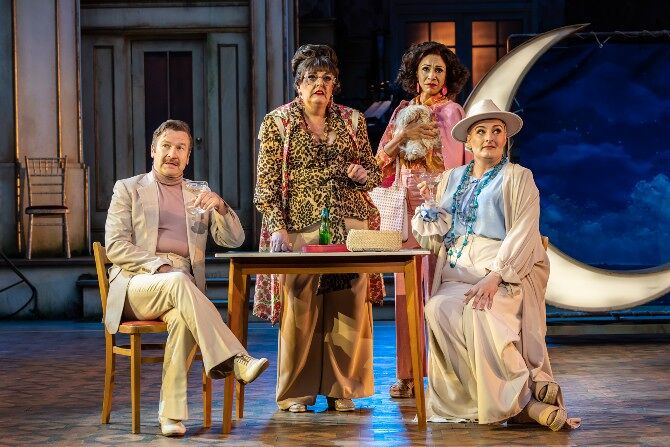
La Cage aux Folles proved a Broadway smash when it first premiered in 1983. The production scooped six Tony Awards and gave the world a gay anthem, “I Am What I Am,” which has since been covered by everyone from Shirley Bassey to Drag Race alum Ginger Minj.
There’s no denying La Cage’s classic status, including two successful Broadway revivals, but much has changed since the show first opened. Back then, it was not unheard of for long-term same-sex couples to keep their relationships discreet or even secret. Now, in the era of same-sex marriage, that’s less likely.
In the original 1978 French film, Albin was played as an ultra-camp. Would Georges and Albin simply seem dated now?
Let’s Have A Moment
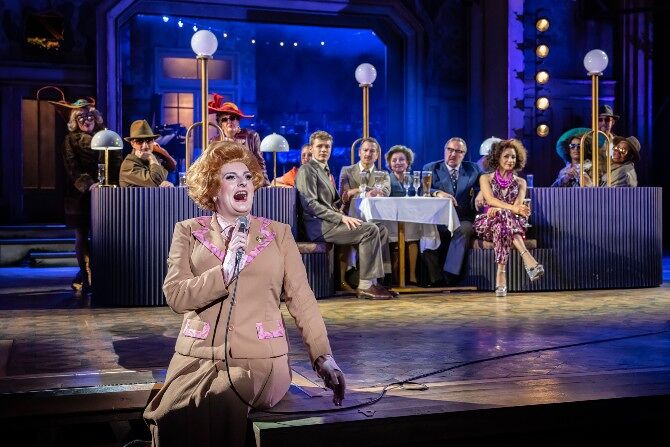
La Cage aux Folles fizzes with energy from the moment its queens first strut onto the stage. Besides the noise of the occasional plane overhead, the production transfers you to La Cage in the heart of St Tropez.
Although the headline performers have the best lines, the “Cagelles” ensemble deserves high praise. The opening number, “We Are What We Are,” sets the tone: showgirls in neon chiffon from a 1970s acid dream. They’re fierce, they’re scary, but they clearly have each other’s backs.
In a later number, they can-can and cartwheel around the stage, with many leaping from steps into the splits. Your jaw will hit the floor.
“I Am What I Am” retains its power as an anthem of self-empowerment. When a rejected Albin (played by Carl Mullaney) sings the Act I finale, it’s impossible to be unmoved. Later, he delivers another highlight with “The Best Of Times.” The song builds and builds: an anthem to living in the now and appreciating all that’s good in your life.
Mullaney’s Albin is a formidable force of nature. Yes, of course, he’s camp… but he owns it. The scene in which Georges tries to teach Albin to act more butch now feels a bit dated and may even make you cringe. However, the ultimate message — don’t try to be something you’re not — is as relevant as ever.
The Last Word
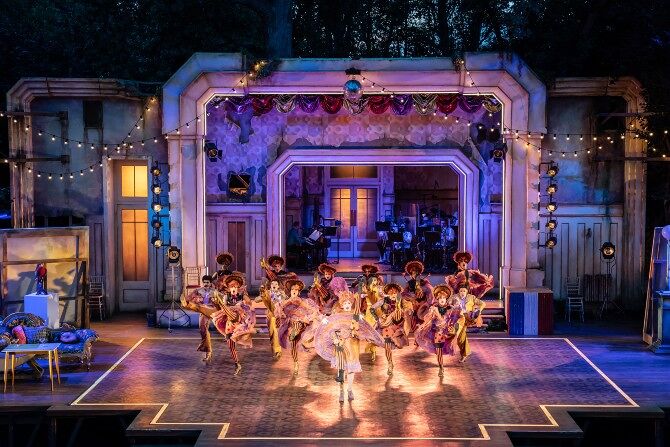
There’s no denying La Cage aux Folles is a confection. However, it still packs a punch. Despite the show’s roots (the original farce premiered in 1973), this production under Tim Sheader’s direction comes across as radically queer and relevant.
Politicians trying to promote traditional family values will always be among us. This year, Tennessee passed a ban on drag shows anywhere that kids might see them. Ron DeSantis supports similar legislation in Florida (ironically, where the original Birdcage movie was set).
The production is Sheader’s swansong as Regent Park’s artistic director after 16 years with the company. As a gay man, he says ending his run with La Cage aux Folles was personal for him. He notes that during rehearsals, a drag storytime event near where he lived was picketed by protestors.
How could a story that offers, in his words, so much “joy, celebration, hope, and love” still be considered dangerous or deviant by certain factions today? It’s a somber undercurrent beneath a musical that remains an in-your-face celebration of chosen family.
La Cage aux Folles plays at Regent’s Park Open Air Theatre, London, through September 23.
Related:
Broadway’s ‘The Shark is Broken’ nips but fails to bite
In “The Shark is Broken,” actor and playwright Ian Shaw tackles his father’s role in “Jaws” and the the over-budget film’s spiraling outcome.
A creative flat tire sends Broadway’s ‘Back to the Future’ skidding off-course
Adapted from the 1985 film starring Michael J. Fox and Christopher Lloyd, ‘Back to the Future’ hopes to attract nostalgic Broadway audiences.




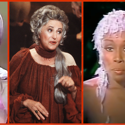

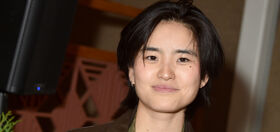








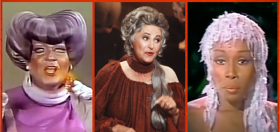






Jim
It’s about time for a revival.
They need to have a production in Miami
DBMC
The 2010 revival was really great. The club was a bit seedy rather than an opulent Vegas showroom type venue. It made it much more immediate.